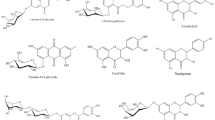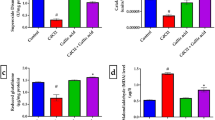Abstract
ALTHOUGH it is known that lysergic acid diethylamide enters the brain, the mechanism by which it acts to produce the psychotic patterns in man is unknown. Experiments which are designed to investigate the brain process in the intact animal might lead to a concept that could be developed to study the chemical process originating or connected with clinically occurring schizophrenia.
This is a preview of subscription content, access via your institution
Access options
Subscribe to this journal
Receive 51 print issues and online access
$199.00 per year
only $3.90 per issue
Buy this article
- Purchase on Springer Link
- Instant access to full article PDF
Prices may be subject to local taxes which are calculated during checkout
Similar content being viewed by others
References
Abramson, H. A., and Evans, L. T., Science, 120, 991 (1954). Evans, L. T., Geronimus, L. H., Kornetsky, C., and Abramson, H. A., ibid., 12, 28 (1956).
Abramson, H. A., Sklarofsky, B., Baron, M. O., and Gettner, H. H., Amer. Med. Assoc. Arch. Neurol. and Psychiat., 77, 445 (1947).
Author information
Authors and Affiliations
Rights and permissions
About this article
Cite this article
ABRAMSON, H., WEISS, B. & BARON, M. Comparison of Effect of Lysergic Acid Diethylamide with Potassium Cyanide and other Respiratory Inhibitors on the Siamese Fighting Fish. Nature 181, 1136–1137 (1958). https://doi.org/10.1038/1811136b0
Issue Date:
DOI: https://doi.org/10.1038/1811136b0
This article is cited by
Comments
By submitting a comment you agree to abide by our Terms and Community Guidelines. If you find something abusive or that does not comply with our terms or guidelines please flag it as inappropriate.



